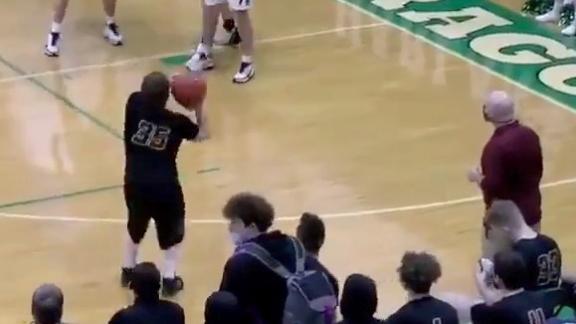Today's winner in Stats & Analytics:
John NashToday's loser:
Bill BelichickYou wouldn't skydive without packing a parachute, would you? You wouldn't fly your girlfriend to Paris to propose but then offer her a cheapo engagement ring, would you? You wouldn't ... well, you get the point. Inadequate preparation can turn a potentially rewarding gamble into a terrible bet. Which brings us to the subject of fourth down in the NFL. It's an established fact that teams don't go for it often enough. But here's an equally important truth: Teams that do decide to go for it need to be a lot smarter about the plays they run.
Reams of analysis, beginning with this seminal 2003 research paper by Berkeley economist David Romer and including the "analytically correct" guide to football I just wrote for The Mag, have found that teams could do a better job of maximizing their points and wins by going for it more frequently on fourth down. I'm not going to revisit this topic, except to ask you this question: Suppose your favorite team faces third down with one yard to go and hands off to its star back, who plows through the line, breaks a tackle, races 40 yards down the field ... then fumbles the ball away. How would you feel? Pretty lousy, right? So why don't we feel just as bad when our teams punt the ball away on fourth down? It's the same outcome, right? Think of punts as turnovers and you'll quickly grasp the wisdom of going for it on fourth down.
Now onto a different question: When teams do choose to go for it on fourth down, do they call the right plays? To answer that, we first need to understand that theoretically, there shouldn't be any advantage to one kind of play over another in any given situation. If you and I are in a two-person, zero-sum contest, we should keep adjusting our various strategies against each other until we arrive at a point where the payoff to you for each of your possible next choices is equal. Think about it in NBA terms: If you double-cover Tim Duncan, he'll kick the ball out to Manu Ginobili, so you will reallocate your guards to the perimeter, but then Ginobili will get the ball back inside, and so you reposition again, and so forth. Eventually, the Spurs may beat you, but they probably won't find an advantage in any particular way of trying to score. This is called a "Nash equilibrium," after John Nash, the brilliant mathematician who was the subject of A Beautiful Mind. (Hat-tip: Advanced NFL Stats, where Brian Burke has explored this issue in great detail.)




